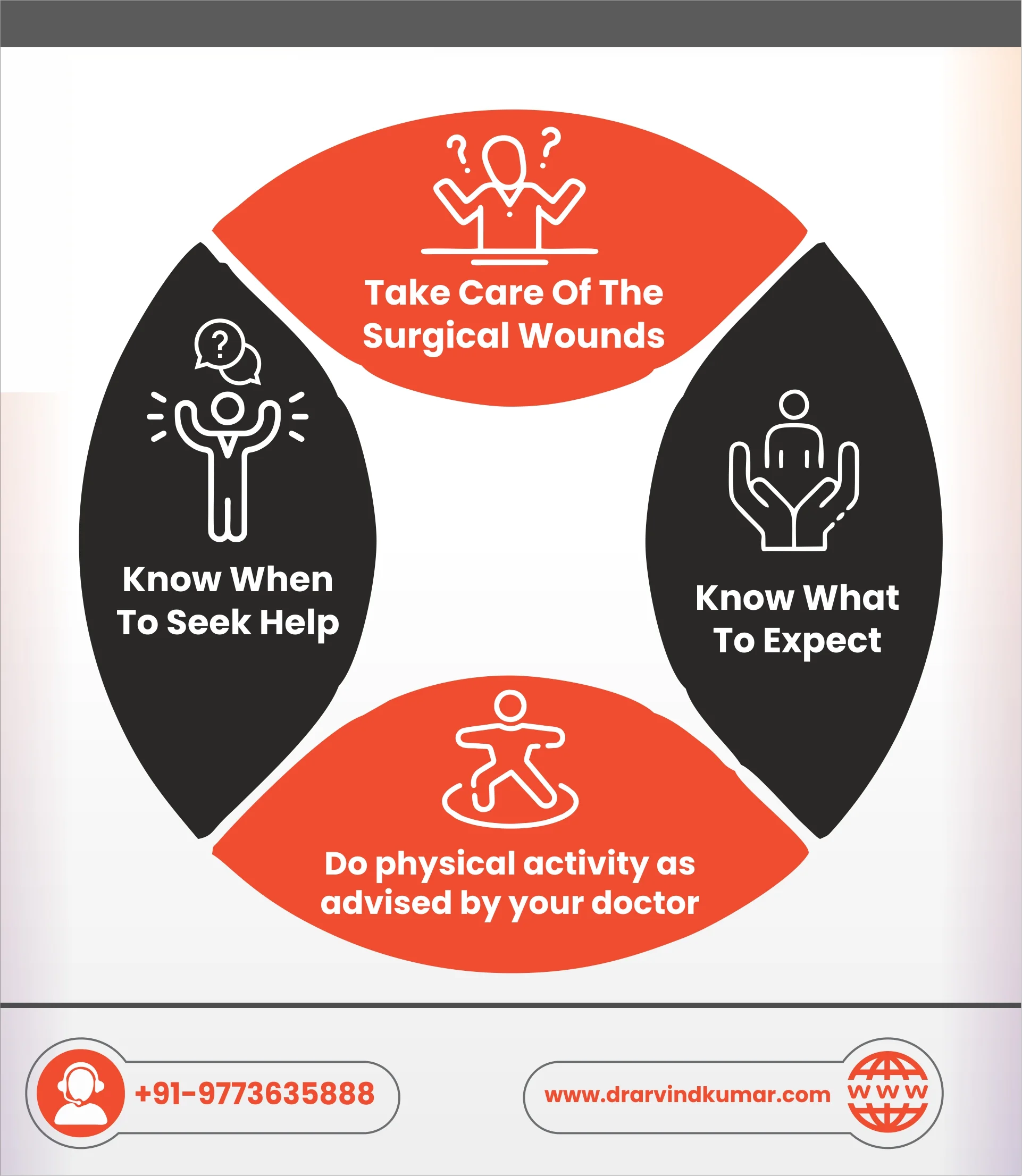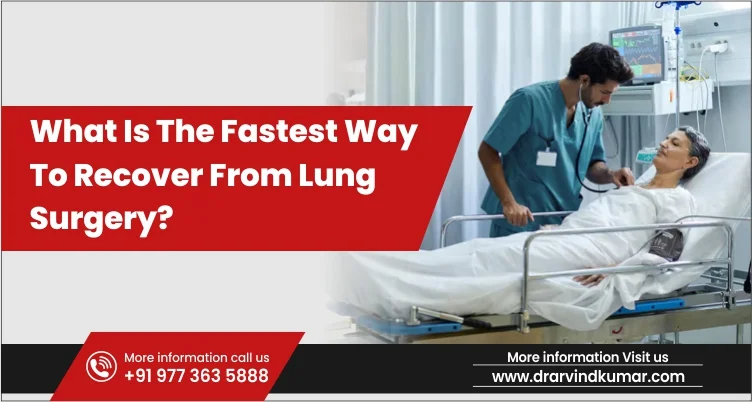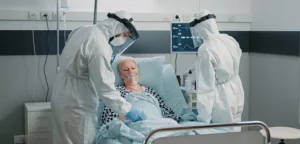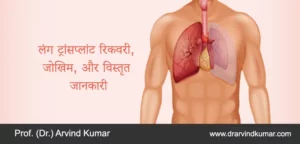Heres What Experts Say About Lung Surgery Recovery
A lung surgery can be physically and emotionally challenging. As the lungs are requisite organs for human survival, your body would need some time to recover from the surgical wounds and get used to whatever changes your lungs have undergone during the surgery. For proper healing, your physical activity would be restricted to some extent for a while, and you would have to take several precautions. 9 Tips For Healthy Lung Transplant Recovery.
It is necessary to give your body the time it needs to heal. But, unsurprisingly, you would want to return to your normal life as soon as you can after a tumultuous period of surgery. Alas, there is no shortcut to help your body recover faster. However, you can always ensure that your recovery after lung surgery is efficient and proper.
Expert pulmonologists have a set of advice that would help you through this. By following these points, you can ensure that your recovery is orderly while giving your body the right time it needs. Read on for more information on the same. How Long Does It Take to Recover from A Lung Transplant?
Know What To Expect
You are kept under close medical supervision after the surgery. But this changes when you are allowed to go home for the remainder of your lung surgery recovery time. As you leave the comfort of having medical staff around you, it is natural to have questions, doubts, and fears about how things will be at home.
The best way to deal with this is by talking to your doctor. Ask them about how long your recovery period is expected to be. They will explain to you and your caretakers all the measures and precautions you need to take at home.
Do not hesitate to ask whatever question or doubt you have, big or small. Here are some of the questions you can ask your doctor.
- Whether or not you have absorbable stitches. If not, when will the stitches be removed?
- Based on your current health status and the medications, what side effects can you expect, and how to best deal with them?
- How much physical activity are you allowed? When can you resume doing light physical work and when can you return to your daily schedule?
- When would the soreness and tightness in the operated area go away?
- For how long do you need to take the medications?
- Your diet and exercise routine
- When do you need to visit for regular checkups?
- What if you need your doctor in an emergency?
- Whether or not you would have a chest tube on. If yes, then for how long?
Take Your Medications And Nutrition Routinely
Medications are one of the most important things you need during your recovery after lung surgery. The medicines prescribed by your doctor might include painkillers, antibiotics, vitamins, and supplements your body needs to heal.
Take all your medications at the prescribed time. Do not forget to ask your doctor if and when you would need to discontinue them. Most probably, the doctor would prescribe you narcotic painkillers in the beginning. These work better in driving away the pain. However, these drugs also have considerable side effects like drowsiness and nausea. So when you feel like the pain is more bearable, ask your doctor to switch to non-narcotic painkillers.
Never skip your antibiotics. Surgical wounds are always at a high risk of infection, and antibiotics keep them at bay. Always take the prescribed dose as and when told by the doctor, or else an infection can lead to severe complications.
Your diet is equally as important as medications. While you would not be able to take in solid food, your doctor might give you some supplements to make up for it. Once you have healed to some extent, consult with your doctor about the best diet plan to follow.

Take Care Of The Surgical Wounds
Whether you had open chest surgery or VATS, you need to take care of your incisions and stitches. Surgical wounds are more in open surgery, which is often the case with lung cancer surgery. So they require more care and a longer lung cancer surgery recovery time.
Ask your doctor how frequently you would need to clean your wounds and put on fresh bandages. Also, ask them about the best way to do it.
If you have a chest tube on a small hole in your chest wall through which the tube passes every day. In case the tube comes out, cover the puncture with a clean bandage and contact your doctor immediately. Do not try to put the tube back in by yourself.
Do physical activity as advised by your doctor.
Keep Your Body Active.
A doctor always recommends keeping up some amount of physical activity after surgery. This prevents your body from jamming up. As early as you walk, recovery is better.
Do the activity as advised by the doctor
After every walk or light physical activity, make sure your body gets enough rest. Do not opt for activities your doctor hasn allowed you to do yet.
Resuming Normal Chores
It would take little time for you to resume your daily chores slowly. Your doctor would advise you to begin with light activities and increase to normal.
Once you feel fit you can start driving and resume activity.
Know When To Seek Help
As you recover in your home, it is important to notice the warning signs and know when you should see your doctor. Here are a few points.
- You have a fever of 101°F or more
- Your stitches start bleeding or are red and sore
- Thick and milky, yellowish or greenish fluid coming from the wounds
- Pain medications do not help with the pain
- Difficulty in breathing
- Persistent cough
- Swelling in the operated area or the arms, neck, or face
- Bloody cough
- Irregular heart rate
- Anxiety, stress, or suffocation
The Outlook
As you take care of your bodys physical needs during recovery, take care of your mental health as well. Keep your loved ones close and have patience. Lung surgery recovery might seem like a long path, but the best way to go through it is by taking your time.
Expert guidance can help you go through a smooth and complication-free lung surgery recovery. You can consult Dr. Arvind Kumar at Medanta Hospital in Gurgaon for a clear understanding of the lung surgery procedure and an assuredly safe recovery. Dr. Arvind has an experience of over 40 years and is a pioneer in the field of the chest and robotic chest surgery in India. He puts the comfort and well-being of his patients above all else and provides the most reliable and cost-effective services.
FAQs
2. What helps pain after lung surgery?
The doctor would prescribe you painkillers after the surgery. However, you still might feel some soreness and occasional pain. The dosage of the painkillers will depend on your recovery state. For extra care, you can ensure that your surgical wounds are clean and avoid stretching your upper body.
3. How can I make my lungs stronger after surgery?
It takes your body some time to adjust after the surgery. You can try breathing exercises to make your lungs strong and continue their efficient working. Begin with the simple method of inhaling, holding your breath and exhaling. You can consult with your doctor about exercises you are allowed to do.
2. What helps pain after lung surgery?
The doctor would prescribe you painkillers after the surgery. However, you still might feel some soreness and occasional pain. The dosage of the painkillers will depend on your recovery state. For extra care, you can ensure that your surgical wounds are clean and avoid stretching your upper body.
3. How can I make my lungs stronger after surgery?
It takes your body some time to adjust after the surgery. You can try breathing exercises to make your lungs strong and continue their efficient working. Begin with the simple method of inhaling, holding your breath and exhaling. You can consult with your doctor about exercises you are allowed to do.

.webp)



